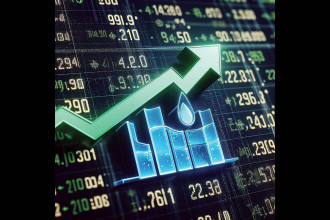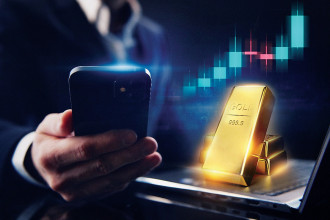
Few days back in a group discussion, our CEO struck a phrase which left me bewildered. The phrase was, “Traders must learn to define a trade”. The words, although simple in nature, made me question a very important facet of every trade. What are the details that a trader employs before initiating a trade? Is there a globally standardised accepted method or does a trader, in the process, discover one? Numerous questions drained my sagging brain and likewise I set out in search for answers. While the article attempts to restructure those answers in a thoughtful manner, an important case in point is that your way of evaluating the question might be altered. Hence, you can either choose to agree with me or continue the path that you had chalked out.
Upon studying various trading patterns and strategies of numerous traders, I have come to the conclusion that a trade can be defined in three distinctive stages i.e. Pre-Trade, Trade and Post-Trade.
Pre-Trade
Just like in any event in life, one must plan and organise before embarking on the journey. A football manager will have all strategies in place to counter the moves of the opposition team and an event manager will scrutinise every detail in-depth to convert the program to a successful one. Every goal in life will have many alternatives and the challenge is to take the right decision at the right time.
Pre-trade stage refers to the phase where a trader analyses the markets and is on perpetual lookout for certain market opportunities. While this may sound simple, it is imperative that the trader must not be coerced by pressure or rumour which sounds the death knell for every trader. It is also important for a trader to do his prep work in regards to the entry and the exit levels of a trade. For this, it is inevitable to calculate the risk-reward ratio. A systematic trader will always have his ratio in place before entering the trade. The ratio will define the profit making motives along with the risk reduction mechanism. What are the reports and statistics surfacing from major economies in the next few trading sessions? Likewise, what is the likely impact of such events upon your trade? The preceding two questions hold prominence in the market conditions of contemporary times since a plethora of information have stacked up in recent days and one should always keep an eye on upcoming reports. The ultimate decision is to select the commodity for trading. While we suggest portfolio management whereby it’s advantageous to place your money in other alternatives to reduce inherent risks, real life situation depicts another. Many traders strategically set their positions in various commodities while others have their preferences on only one or two commodities. While the discussion floor is open on which one is appropriate, such distinctive trading characteristics rests with the trader itself.
Trade
After research, it is now time to roll out the plans and ‘walk the talk’. Trade is defined as a phase in which positions are initiated or executed. Plans created in the first phase are carried out with precision. It might take years to build plans but it can take few seconds to destroy it. It is just like a relationship that takes years to build but one reckless action can destroy the trust and confidence imbibed within it. Traders will place their positions or initiate trades in this phase after having completed all necessary work. This stage will also highlight the exit levels whereby traders place: take profit or/and stop loss levels to maximise the profits or minimise the losses at a pre-defined level. An important logic which has to be placed at the forefront is ‘sometimes the best trade is no trade’. It means that trader does not have to place orders but instead should keep looking for market opportunities to develop and then initiate trade.
Post-Trade
This stage defines the homework of the preceding trade. While some traders will record trade in the back of their mind, due to the human tendency to forget, it is advisable to keep a log book where the trades are recorded. This log book will have important features like date, time, price, take profit and stop loss levels among others and will have a historical evidence of past trades initiated. This detailed record will stand the traders in good stead for upcoming trades. Traders tend to give less importance to this phase since it is sometimes beyond the scope and time of a corresponding trader. But as we step into the future, it is important to analyse where we have come from. Just as a football manager scrutinises each passage of the game and tries to dissect the good points from the bad, the post-trade phase is a reflection of each trade and tries to process on what was and what could have been. Regretting about the past may sometimes not heal the matter, but in today’s world looking at the past and reflecting on the pros and cons will provide the trader a look into the future.
Numerous traders have different methodologies to process the matter and will yield various results which will differ from individual to individual. In the challenging trading environment of today, it is prudent to not walk unchartered territories, but stay prepared and rational towards the events unfolding before your eyes. An ultimate motive for a trader will be to search for the Holy Grail where traders look for the optimum strategy for generating profits. But instead, we can be best prepared for tomorrow. Since the best preparation for tomorrow is being well-prepared today.
By Vivek Risal, Vivek Risal is associated with Mercantile Exchange Nepal Limited in the capacity of Manager in Research and Development Department.






